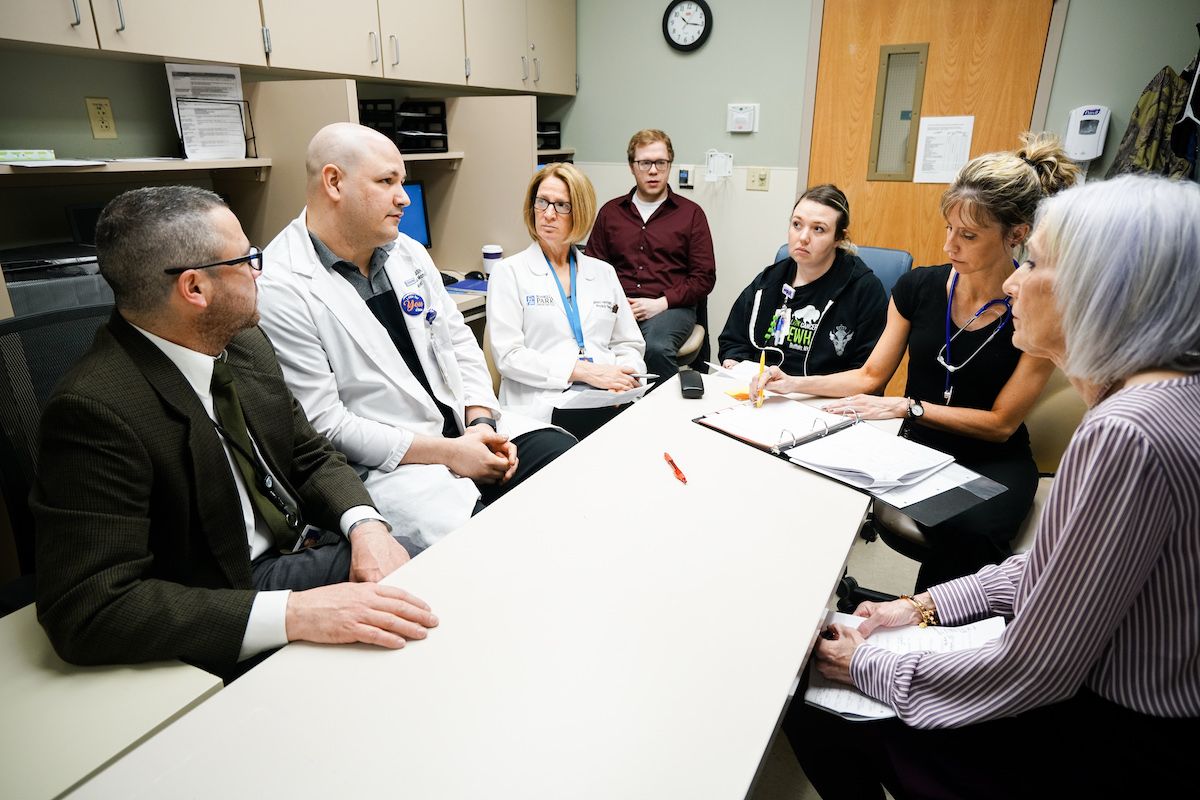Every morning a team gathers in the 6 West unit of the Roswell Park hospital. The group includes bedside nurses, the nurse in charge of the unit, physicians, a social worker, a dietitian and a physical therapist. Together they discuss the needs of all 18 people currently in their care, and then it’s time for questions: If Patient A will need additional care at home, has the family been taught how to provide it? If not, who will teach them? What other things have to be done before the patient is discharged from the hospital?
This practice, called medical rounding, helps the staff identify and address the needs of every patient — a goal that can be challenging, given the many issues patients may face in addition to their diagnosis. “Patients aren’t coming here with just a cancer diagnosis,” says Kara Eaton, MA, Executive Director of the Patient/Family Experience. “They’re coming with financial issues, social issues, possibly drug and alcohol addiction, and we have to treat the whole patient.”
Lem Mogavero, Jr., BSN, RN, Clinical Nurse Manager on 6 West, says daily rounding — with everyone sitting at the same table — reduces the risk that messages will get lost in the hectic pace of the medical oncology unit. If an issue comes up during rounding that requires assistance from Social Work or Nutrition, “Someone from Social Work is right there. Someone from Nutrition is right there.”
Sharing information with everyone in the same room helps ensure that all members of the patient’s team are aware of any new problems or concerns, and that steps are in place to address them. For example, “When we know a person is struggling to pay for their care, we can talk about resources to help them through that,” says Mogavero. Patients may also need referrals or assistance for issues ranging from palliative care to legal matters such as appointing a health care power of attorney.
The idea is to provide better coordination of care, which can improve both safety and patient satisfaction, says Eaton. “It means clearer, more concise and organized communication on a daily basis.”
Launched at the beginning of February, the multidisciplinary rounding program is off to a smooth start. Mogavero says the practice has been “very well received by the staff. The nurses picked it right up, and the physical therapists and dietitians have been at every single meeting. It’s a welcome change, and it’s been a great rollout.
“We are being proactive. Communication is a lot better when everybody is part of the conversation.”
